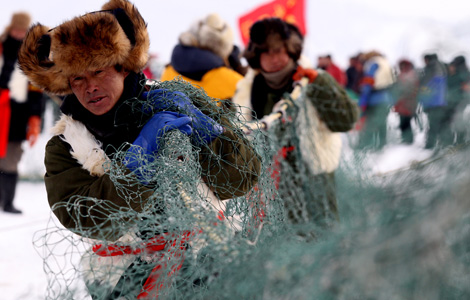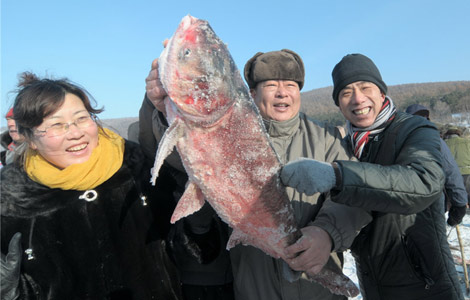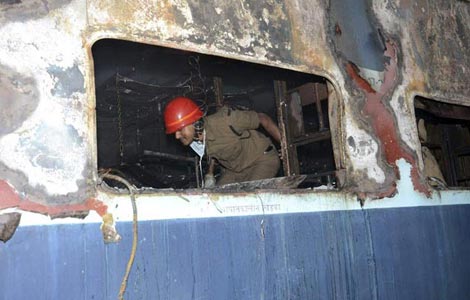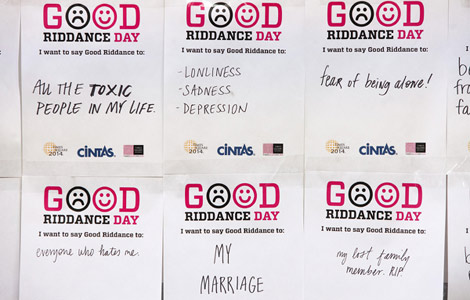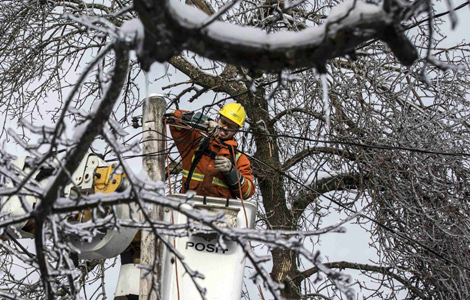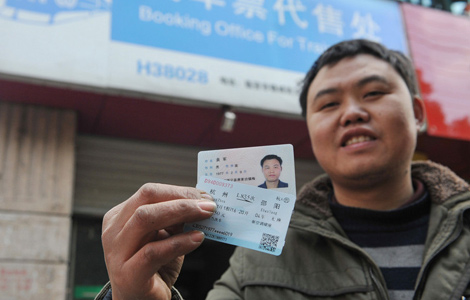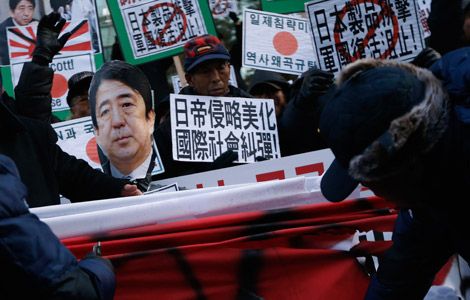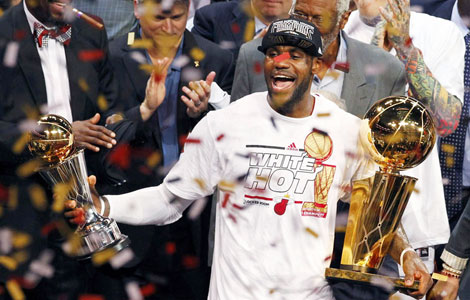Outrage still festers over Abe shrine visit
Updated: 2013-12-30 08:28
By By ZHANG YUWEI in NEW YORK and CHANG JUN in SAN FRANCISCO (China Daily USA)
|
||||||||
Chinese community leaders from the New York tri-state area gathered during the weekend to condemn Japanese Prime Minister Shinzo Abe's visit to the Yasukuni Shrine — a memorial that honors, among others, 14 of Japan's World War II Class-A war criminals.
On Saturday, some 100 community leaders of the United Chinese Associations of Eastern US held a seminar in New York's Chinatown to express their condemnation over Abe's provocative visit made last Thursday.
The attendees travelled from New York, New Jersey and Connecticut — representing several hundreds of their members in their own local communities — said Abe's controversial visit deeply hurt the feelings of Chinese people and people from neighboring countries, all of whom suffered from Japanese aggression during WWII.
"Abe's visit is irresponsible towards the feelings of Japan's neighboring countries which suffered badly from the brutal aggression during WWII and it challenged the post-war international order and peace that we all have been trying to maintain," said Guan Liang, chairman of United Chinese Associations of Eastern US.
Liang added that that his association is organizing a demonstration in front of the Japanese Consulate in New York.
"The visit obviously shows that Abe neglects people in the neighboring countries who suffered from the atrocities done by Japan," said Zheng Siqi, executive vice-chairman of Fu Jian Association in New York. "We, overseas Chinese people, are hurt and angry about this and are really concerned about Japan's attempt to pick up militarism that will threaten the peace we have had since WWII."
The visit by Abe — on the day marking his first anniversary after assuming office — was the first time in seven years that a sitting Japanese prime minister visited the shrine where the war criminals, convicted by an Allied tribunal after the war, are commemorated.
The visit has drawn strong condemnations from other Asian countries including China and the Republic of Korea.
Yang Jiechi, China's state councilor in charge of foreign affairs, said in a statement on Saturday that Abe's visit was a mistake that must be corrected.
"The Chinese people cannot be insulted, nor can the people of Asia and the world be humiliated. Abe must own up to his wrongdoing, correct the mistake and take concrete measures to remove its egregious effects," said Yang, adding the move raised questions over the Japanese government's ability to repent its militarist aggression and colonial rule.
"We urge Abe to give up his illusions and mend his ways, otherwise he will further discredit himself before Japan's neighbors and the international community," Yang said.
Yang is the highest-ranking Chinese official so far to respond to Abe's visit.
Also on Saturday, United Nations Secretary-General Ban Ki-moon issued a statement through his spokesperson expressing his concern over Abe's shrine visit.
Referring to a strong reaction to it by China and the Republic of Korea, the spokesperson said Ban has "consistently stated that the countries in Northeast Asia are important partners for the United Nations whose contribution is significant in shaping our future".
Ban urges the countries in the region to "come to a common view and understanding of their shared history" and "stresses the need to be sensitive to the feelings of others, especially the memories of victims, and focus on building mutual trust and a stronger partnership".
Abe's action has also heightened tensions between Japan and China over the disputed Diaoyu islands.
On Sunday, New York-based Eastern USA Action Committee for Defending the Diaoyu Islands called for a meeting to show the committee's wide condemnation over Abe's visit.
"This (the visit) is not something surprising though. All his (Abe's) actions (read that) he wants to arm Japan in order to gradually break away from the US, which is not in the US' favor," said Chen Xianzhong, chairman of the New York Alliance for Defending the Diaoyu Islands at the Sunday meeting.
"That is why we need to do more to let the US know what will happen if the Japanese militarism revives one day," Chen added.
On the West Coast, Chinese community leaders are planning events to show their anger over Abe's visit.
"Abe's shrine visit reflects the potential revival of provocative militarism in Japan, for which all the peace loving people should keep vigilant and condemn," said Betty Yuan, CEO of the Northern California Chinese Athletic Federation.
"As infuriating as it is, Abe's action also provides an opportunity for the world to better understand what his true colors are. There is no chance for Japan to be the leader in Asia if it keeps denying its wartime evils during WWII, and does not apologize to and compensate for its war-shattered neighboring countries and people," said Yuan.
Huang Che-Tsao, president of the New York Chinese Associations Alliance, said they will submit a letter of protest to the Japanese Consulate General. Meanwhile,
Northern California-based Jiangsu Association is organizing a protest in Silicon Valley for Jan 12.
Zhang Yang in New York, Qidong Zhang in San Francisco and Zhao Yanrong in Beijing contributed to the story
Contact the writer at yuweizhang@chinadailyusa.com, junechang@chinadailyusa.com
Most Viewed
Editor's Picks

|

|

|

|

|

|
Today's Top News
Auto industry rolls through ’13 for China, US
Outrage still festers over Abe shrine visit
Suicide bomber kills 16 at Russian train station
Li says economy stable in 2014
Bigger role considered in the Arctic
3rd high-level official probed
Abe stepping up military agenda
NPO rules expected in 2014
US Weekly

|

|
